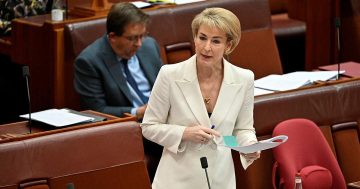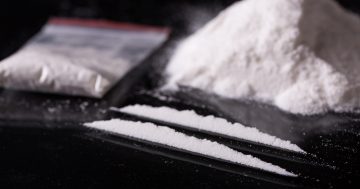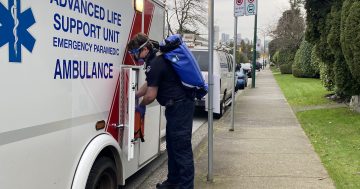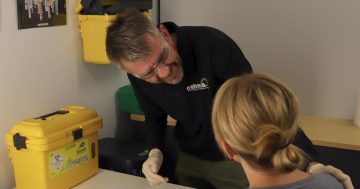
Labor backbencher Michael Pettersson will introduce the legislation in February. Photo: Facebook.
It didn’t take long after Labor backbencher Michael Pettersson announced he wanted to partially decriminalise a range of drugs in the ACT for the disinformation to flow.
Mr Pettersson will introduce a private member’s Bill in February to give police officers the discretion to fine people caught carrying small quantities of drugs like heroin, cocaine, methamphetamine and MDMA instead of punishing them through the criminal justice system.
The Bill will not come to a final vote until the end of 2021 at the earliest.
It is now time for sensible debate on the issue as opposed to a chorus from idealogues.
Within hours, the ACT Young Liberals put up a post on Facebook and Twitter shaming Mr Pettersson, saying that “ACT Labor will legalise heroin, ice and MDMA”, complete with a grim reaper image.
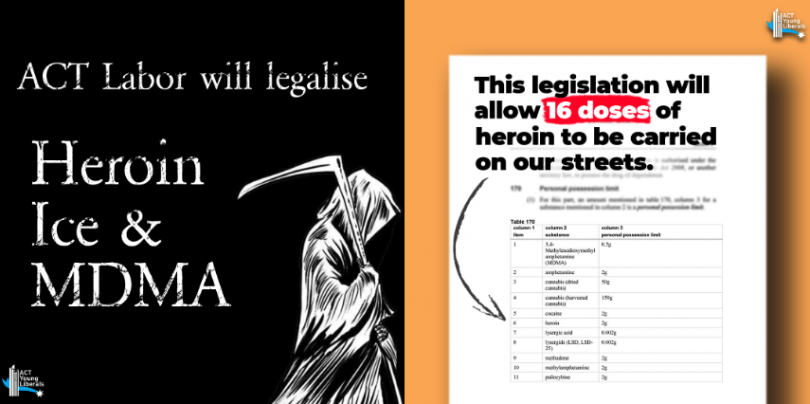
ACT Young Liberal social media posts about drug decriminalisation. Photo: Facebook.
The post directly contradicted a speech given by then Shadow Attorney-General Jeremy Hanson before the election calling for a measured, reasoned argument during the public health debate.
“I think we should all resist the temptation as we proceed with this debate … for one side of politics to say, from my side, that Mr Pettersson wants to legalise all drugs, and from the Labor Party’s point of view to say that the Liberal Party wants to roll out a Philippine-style drug policy,” he told the Assembly before the election.
“I do not think that would be helpful.”
Drug policy debates are emotional by nature, social media comments about incoming crime waves and junkie takeovers proved this.
But in this instance, it is important to remember that the maximum criminal penalty of two years’ jail remains in the new legislation if someone is caught with a quantity of drugs above the Commonwealth Government’s drug trafficking threshold. The Bill only provides police officers with another avenue to deal with drug abuse if they think diverting a person away from the criminal justice system would be beneficial in the circumstances.
It does not “allow” for the possession – or taking – of drugs.
Not only does the diversion reduce the associated costs of policing and detention (the daily cost of “maintaining” a detainee at the AMC was almost $300 in 2017/18), but people who avoid the criminal justice system are less likely to engage in future criminal activities.
Calvary Hospital’s emergency consultant David Caldicott put it best when he said: “It is an absolute delight to see legislators trying something new in our approach to drugs because, honestly, the drugs policy environment in Australia is utterly jaded.”
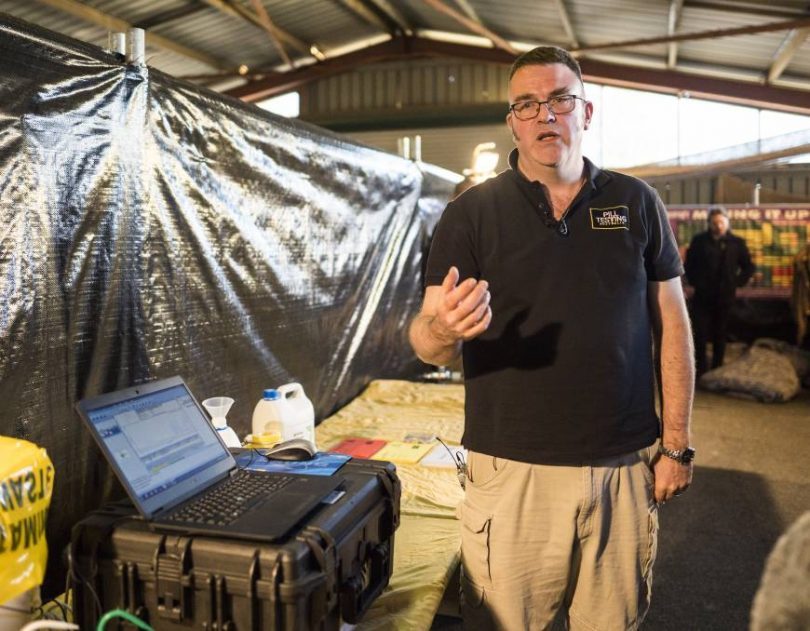
Professor David Caldicott was instrumental in running the ACT’s pill testing trials. Photo: File.
“We have been conditioned to believe, in the same way with alcohol in the 1920s and 30s that alcohol is a terrible thing that should never be used, that all drugs are as well. Decriminalisation is quite clearly associated with reduced harm.
“The principle is strong and any argument to suggest that it is intellectually or ideologically flawed is not based in science. My job is to keep people alive, not to ensure that they die to act as a lesson to others.”
The legislation is not perfect, Mr Pettersson himself admitted that.
Decriminalisation is no silver bullet, Professor Caldicott admitted that too.
“To assume that the success that has occurred overseas will be immediately replicable in Canberra, there is plenty of reason to be hopeful about that but there are also reasons to proceed with caution,” Professor Caldicott said.
“Australians have no sense of moderation where alcohol and drug consumption is concerned.”
But scientific best practice suggests it will be better at reducing harm than zealous enforcement.
“A drug-free Australia is nonsense, it is magical thinking. My children want a unicorn for Christmas but they cannot have that because it does not exist and neither does any drug-free jurisdiction in the world,” Professor Caldicott said.
“What you can determine is how much harm the drugs cause the jurisdiction in which you live. If it is tailored to the ACT environment, there is every reason to expect that drug use would diminish.”
Greens Drug Harm Minimisation spokesperson Johnathan Davis used the announcement to call for an inquiry into alcohol, tobacco and drug harm minimisation, saying the Territory needed a comprehensive suite of policies to tackle the effects of drug dependency in our community.
Policies also need to include educating the broader public about what the changes mean and the benefits of the Bill, he said.
“I think there still is a level of confusion in the community about something being illegal and decriminalisation, so that is a responsibility on lawmakers and on the government to make it really clear what the two things mean,” he said.
“There is a sense from some in the community that they want justice when a wrong is done. I would argue that we owe the suffering person justice by providing them with good health care.
“[The comments on social media] tell me that there are a lot of people who want to have this conversation, who are ready to have this conversation, who have varying degrees of experience to inform the conversation.”
People are ready to have the conversation, let’s just keep the debate honest.













